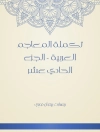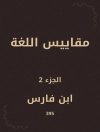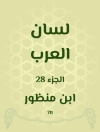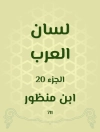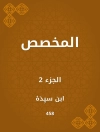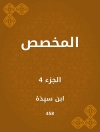The Handbook of Internet Studies
HANDBOOKS IN COMMUNICATION AND MEDIA
‘Highly recommended.’ CHOICE
‘A state-of-the-art collection that represents and celebrates the diversity of theoretical and disciplinary approaches marking this brave new field. A new must-have reference book for Internet studies.’ Caroline Haythornthwaite, University of Illinois
‘This indispensable volume reflects the complexity of Internet studies – indeed, the Internet itself – by bringing together a diverse set of voices, geographies, disciplines, and arguments. It is not only an important resource for practitioners, but will also spark the curiosity of those on the edges of the field, including humanists, social scientists, and engineers alike.’ Michael Zimmer, University of Wisconsin
‘A comprehensive and useful volume that will appeal to students, teachers, and researchers. I highly recommend it to those who have been following the field since its emergence in the 1990s as well as to those new to the field.’ Steve Jones, University of Illinois at Chicago
‘This handbook is landmark, documenting that Internet studies have now come of age.’ Niels Ole Finnemann, Aarhus University
To fully understand the impact and significance of the Internet, it is essential to consider its historical, societal, and cultural contexts. This handbook presents a wide range of original essays by established scholars in the field of Internet studies exploring the role of the Internet in modern societies, and the continuing development of its academic study.
Зміст
Notes on Editors and Contributors.
Acknowledgments.
Introduction (Charles Ess and Mia Consalvo).
Part I: Beyond the Great Divides? A Primer on Internet
Histories, Methods, and Ethics.
Introduction to Part I (Charles Ess).
1. Studying the Internet Through the Ages (Barry
Wellman).
2. Web Archiving – Between Past, Present, and Future
(Niels Brügger).
3. New Media, Old Methods – Internet Methodologies and the
Online/Offline Divide (Klaus Bruhn Jensen).
4. The Internet in Everyday Life: Exploring the Tenets and
Contributions of Diverse Approaches (Maria Bakardjieva).
5. Internet Research Ethics: Past, Present, and Future
(Elizabeth A. Buchanan).
Part II: Shaping Daily Life: The Internet and
Society.
Introduction to Part II (Mia Consalvo).
6. Assessing the Internet’s Impact on Language (Naomi
S. Baron).
7. Internet Policy (Sandra Braman).
8. Political Discussion Online (Jennifer Stromer-Galley and
Alexis Wichowski).
9. Does the Internet Empower? A Look at the Internet and
International Development (Deborah L. Wheeler).
10. Internet and Health Communication (Lorna Heaton).
11. Internet and Religion (Heidi Campbell).
12. Indigenous Peoples on the Internet (Laurel
Dyson).
13. Queering Internet Studies: Intersections of Gender and
Sexuality (Janne Bromseth and Jenny Sundén).
Part III: Internet and Culture.
Introduction to Part III (Mia Consalvo).
14. Community and the Internet (Lori Kendall).
15. MOOs to MMOs: The Internet and Virtual Worlds (Mia
Consalvo).
16. Internet, Children, and Youth (Sonia
Livingstone).
17. Internet and Games (T. L. Taylor).
18. Social Networks 2.0 (Nancy K. Baym).
19. Newly Mediated Media: Understanding the Changing Internet
Landscape of the Media Industries (P. David Marshall).
20. Online Pornography: Ubiquitous and Effaced (Susanna
Paasonen).
21. Music and the Internet (Robert
Burnett).
22. Why and How Online Sociability Became Part and Parcel of
Teenage Life (Marika Lüders).
Index.
Про автора
Robert Burnett is Professor and Research Chair of Media and
Communication Studies at Karlstad University, Sweden.
Mia Consalvo is Associate Professor in the School of
Media Arts and Studies at Ohio University.
Charles Ess is Distinguished Research Professor,
Interdisciplinary Studies, and Professor of Philosophy and
Religion, Drury University, Springfield, Missouri, USA. He is also
Professor MSO in the Information and Media Studies Department at
Aarhus University in Denmark.


